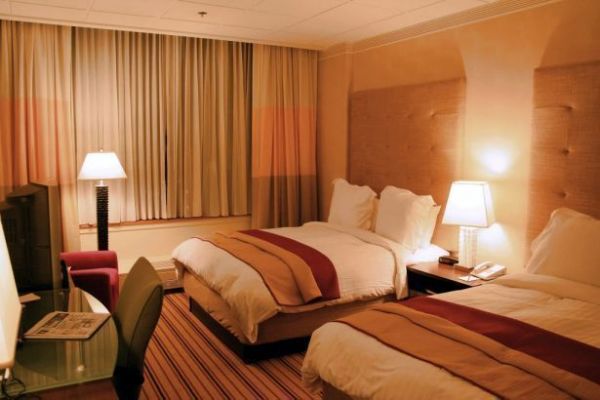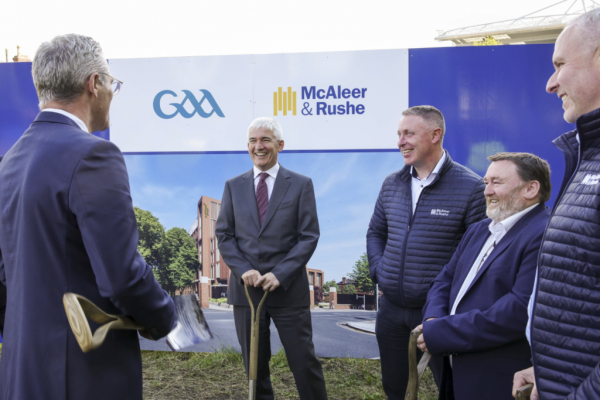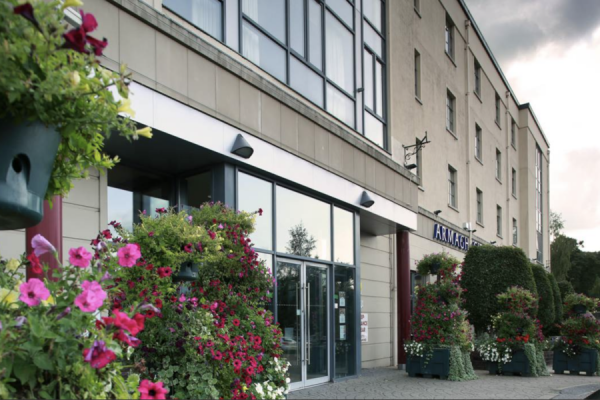Almost nine in 10 hoteliers across the country are readying themselves to reopen for guests by mid-July, according to an industry survey undertaken by the Irish Hotels Federation (IHF).
The survey of over 300 hoteliers was taken following the government's decision to bring forward the reopening date of hotels to June 29 and the publication of operational guidelines by Fáilte Ireland.
IHF CEO Tim Fenn stated, "It is really encouraging to see that 87% of hotels now intend to reopen by mid-July. We face a serious challenge however in terms of making up ground due to lost overseas business as highlighted by our survey. For the peak summer month of August, members project an average occupancy of 38% this year compared with an average occupancy of 90% for the same month last year - representing an enormous drop in projected business levels. Irish tourism's heavy dependence on overseas markets and tour groups means there is plenty of availability for those hoping to enjoy a break in an Irish hotel or guesthouse this summer."
Desired Supports
The hoteliers who took part in the survey cited the wage subsidy scheme and a reduced tourism VAT rate as the two most important supports necessary for the sector.
Fenn said, "The findings demonstrate the critical importance of government support for the hotels sector in order to ensure the survival and long-term financial stability of tourism businesses.
"Further action is required by government to put in place sector specific supports for the tourism sector to aid the recovery. The Temporary Wage Subsidy Scheme is helping businesses to keep their teams together during these financially challenging times. It should be continued for as long as the impact of COVID-19 restrictions remain, and it should be extended to cover seasonal employees.
"Reducing the tourism VAT rate on a permanent basis would assist recovery and secure a viable and sustainable future for tourism. International competitiveness is an urgent issue for Irish tourism with hotel VAT now higher than 28 European countries we compete with."
Additionally, the IHF stated that while it welcomes the incoming government's recognition of the challenges facing tourism in the programme for government together with its commitment to place tourism at the centre of its National Economic Plan, it is calling on the government to recognise equally the urgent requirement for immediate measures to help businesses survive.
Fenn asserted that a failure to act now could be particularly devastating for regional Ireland given that 70% of tourism employment is located outside of Dublin.
The CEO said, "Tourism businesses, including hotels, are facing a fall of 70% in revenue this year due to the collapse in the overseas visitors. The establishment of the Tourism Recovery Taskforce is a very welcome first step. But, in addition to its work, immediate interventions in relation to liquidity and competitiveness are also required to support tourism businesses throughout the length and breadth of Ireland.
"Hotels and guesthouses not only provide local employment opportunities, they buy local services, source locally-produced food and provide a vital infrastructure in support of local business and communities, so the ramifications will be felt far and wide.
"One of the lessons learnt from the financial crisis was the requirement to act extremely quickly to avoid long-term consequences."
Proposed Measures
The IHF is calling on the incoming government to implement the following measures as a matter of urgency:
- a significant widening of the direct business grant scheme;
- 0% interest on government guaranteed finance;
- a government supported scheme for deferral of capital and interest payments for a period of one year;
- reassessment of the SBCI loan system to ensure appropriate products are available for tourism and hospitality;
- continuation of the job subsidy scheme for tourism and hospitality during the crisis, with the inclusion of seasonal employees not currently eligible for the scheme;
- reduction in tourism VAT on a permanent basis to assist recovery and secure a viable and sustainable future for tourism;
- an extension of the three-month waiver period for local authority rates and charges to coincide with business interruption due to the COVID-19 crisis and for a minimum of 12 months, and the basing of payment of local authority rates on reduced levels of activity due to the COVID-19 crisis thereafter.
© 2020 Hospitality Ireland – your source for the latest industry news. Article by Dave Simpson. Click subscribe to sign up for the Hospitality Ireland print edition.








